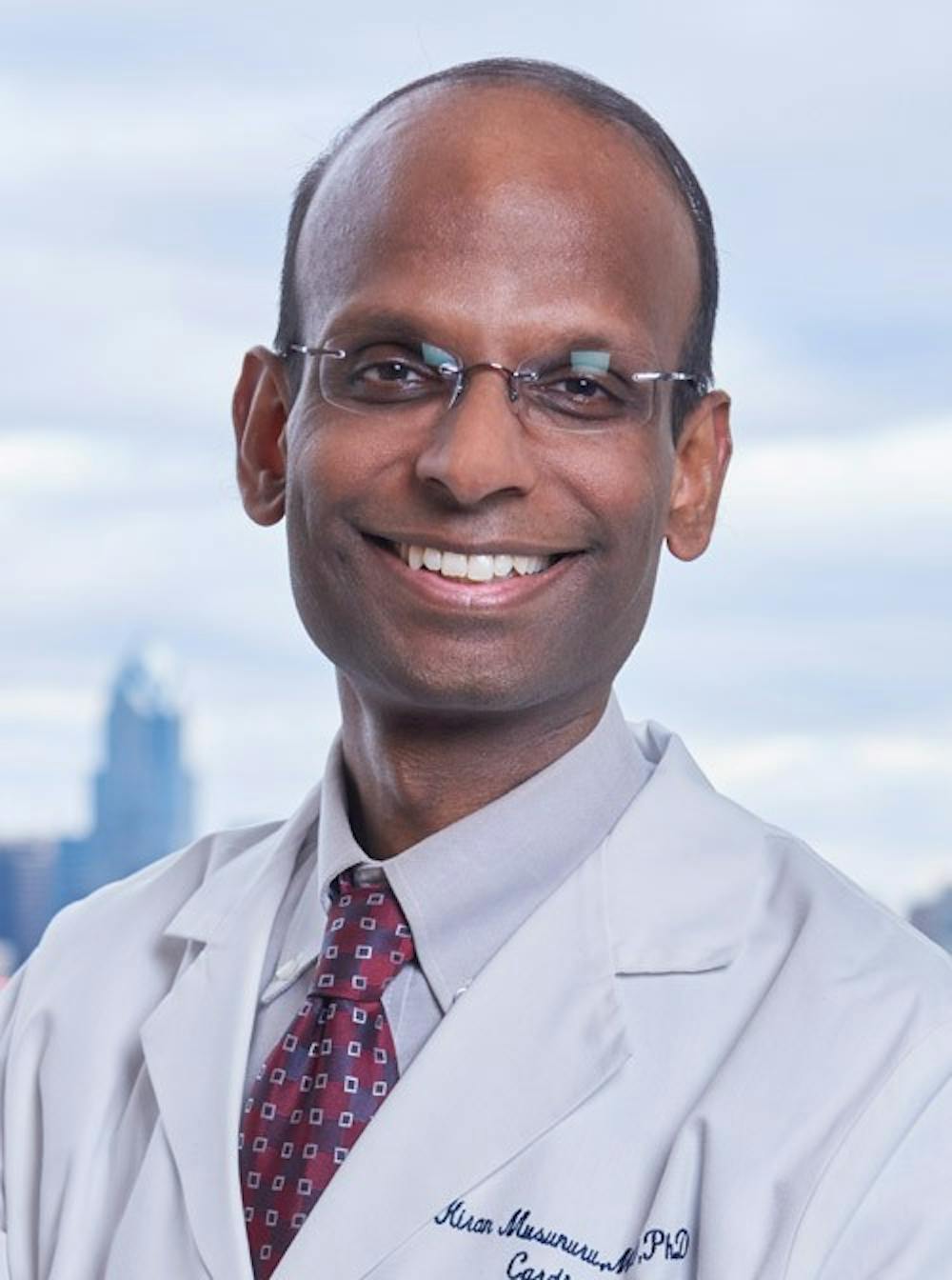
Four professors from the Perelman School of Medicine co-signed an open letter calling for a temporary ban on embryonic genetic manipulation around the world. This follows controversial embryonic research released by Chinese researcher He Jiankui in November 2018, in which he claimed to have made the world’s first gene-edited babies.
In the letter, more than 60 gene therapy and genome editing experts expressed their concerns over He’s human embryo editing experiment and urged the Secretary of the Department of Health and Human Services to advocate for a global ban on germline gene editing. The Penn professors said they signed the letter because of the dangers of this research, adding that it is too early to know what the risks are.
He's research involved using CRISPR gene editing technology to disable a gene in twin female embryos so the girls would be resistant to HIV, and it is believed to be the first use of CRISPR resulting in a live human birth. Medicine professor Kiran Musunuru, who co-signed the letter on April 24, said He’s research was “poorly done” in a scientific sense and that germline editing research should not continue until scientists are confident it is safe.

Penn Medicine professor Kiran Musunuru
“[He’s experiment] resulted in the embryo being flawed with patch work of different edits rather than the intended specific edits,” said Musunuru, who also directs the Genetic and Epigenetic Origins of Disease Program in the School of Medicine’s Cardiovascular Institute. “This has potential unknown safety consequences for the twins that were born.”
While gene editing has the potential to cure genetic diseases, germline editing is controversial because it modifies the DNA of embryos without their consent and in a way that can be passed down to future generations. Somatic cell editing, however, involves changes to mature tissues that are not passed down to offspring.
Cardiovascular Medicine professor and Penn Institute for Regenerative Medicine Director Edward Morrisey said He’s research was done without “the normal safeguards and approvals.” In January, a Chinese government investigation found He “seriously violated” state laws by fabricating an ethical review and avoiding proper supervision.
“It is just too early,” Morrisey added. “We don’t know enough about the off-target effects or effects of the edits during development of the human embryo yet.”
Gene Therapy Program director and Medicine professor James Wilson, who co-signed the letter, added that one of the biggest concerns for human germline editing is its ability to pass on to the future generations.
“As a physician, who is interested in treating genetic diseases, I don’t really see the need for germline genome editing because we can also treat the newborns with gene therapy,” Wilson added.

Gene Therapy Program director and Medicine professor James Wilson
Wilson also expressed concerns that “the irresponsible uses” of germline editing technology would “diminish the enthusiasm and support of genome editing of somatic cells to treat patients with lethal and disabling diseases.”
Morrisey brought up the additional concern that people could use human germline editing to create cosmetic changes in offspring that aren’t medically necessary.
“A lot of people are concerned that down the road, people will be asking for more trivial changes to their offspring that aren’t related to diseases, and creating the ‘designer babies,’” Morrisey said.
Clinical trials involving human germline editing are currently prohibited in the United States. Musunuru urged the United States to serve as an example for the world, especially for countries that are historically not as rigorous in their oversight of research. While he said it is not the role of the University at large to weigh in, he added that “individuals of the Penn community should be involved in discussion and advocate for delay or moratorium” at forums and conferences.
Musunuru added that he signed the letter because it is important to educate policy makers on gene editing technologies and involve them in ethical debates.
“It is important to include the public and the regulators in this discussion and not just a discussion among scientists,” he added.
Morrisey said while some might think a total moratorium on germline editing would slow down the scientific advancement of genome editing technology, “the expediency of science should not overrule the ethical imperative in research and medicine.”
“We ought to be vetted in a much more through way by a broader stockholders,” Wilson added. “It is important to make sure that from an ethical perspective that we as a society are willing to cross that line.”
The Daily Pennsylvanian is an independent, student-run newspaper. Please consider making a donation to support the coverage that shapes the University. Your generosity ensures a future of strong journalism at Penn.
Donate







